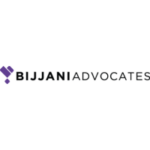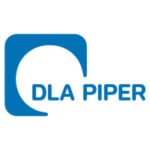-
What are the typical ownership structures for project companies in your jurisdiction? Does this vary based on the industry sector?
Project companies in Greece usually operate in the form of non-listed sociétés anonymes (companies limited by shares) under L. 4548/2018 (the “Company Law”), most commonly as special purpose vehicles (SPVs) established by the sponsors of the project. Sociétés anonymes are limited liability companies with a legal personality, which are solely responsible for their debts through their assets.
The industry sector does not usually affect the decision regarding the form under which the project company shall be established. In cases of public-private partnerships (PPPs) governed by L. 3389/2005, the SPV has to be established as a société anonyme. PPPs are long-term contracts between private entities and public bodies, under which SPVs are established with the sole purpose of providing services and/or implementing projects falling within the competence of the public body.
-
Are there are any corporate governance laws or accounting practices that foreign investors in a project company should be aware of?
The corporate governance framework in Greece mainly includes L. 4706/2020, the Greek Corporate Governance Code, as well as the decisions issued by the Hellenic Capital Market Commission, which apply in parallel with the provisions of the Company Law and best practices on self-regulation.
The above legislation is mandatory only with respect to sociétés anonymes listed in the regulated market (Athens Exchange) or to companies with securities negotiated on the multilateral trading facility, i.e., the Alternative Market of the Athens Exchange; non-listed sociétés anonymes may also choose to comply with the above legislation voluntarily. Projects benefiting from non-recourse financing remain off balance-sheet of the sponsors of the project.
-
If applicable, what forms of credit support from sponsors or host governments are typically provided?
The forms of credit support that the sponsors typically provide to a project company may include: (i) equity injections in the form of share issues or subordinated bond loans, (ii) security rights over various types of assets, including over shares in the project company, (iii) letters of guarantee issued by credit institutions following application by the sponsors, and (iv) in certain cases, corporate guarantees or sponsor support agreements.
Host governments may participate in the financing either in cash or in kind. For example, under the PPPs and upon completion of a project, private partners may have the right to collect fees, such as tolls, from the end users or direct payments from the State. Payments from the government in the form of financial contribution are also sometimes provided.
Another important funding source is through the Recovery and Resilience Facility, a €724 billion EU initiative that is used to fund reforms and investments that foster recovery, green transition, and digital transformation in Member States of the EU.
In Greece, project finance with the employment of funds under the Recovery and Resilience Facility (RRF) focuses on supporting eligible investment plans through grants and loans under favorable terms. The Greek RRF allocates approximately €31 billion, with €12.7 billion being available as loans through local and European financial institutions. These funds aim to catalyze investments in five pillars: green transition, digital transformation, innovation, economies of scale through partnerships, and export orientation.
For private sponsors and project developers, the RRF offers loans covering up to 50% of the total eligible investment cost, complemented by co-financing loans by the credit institutions (at least 30%) and borrowers’ own participation funds (at a minimum of 20%). Projects benefiting from RRF loans also enjoy lower interest rates compared to standard market offerings, significantly reducing financing costs.
This structured funding framework fosters resilience, sustainable growth, and technological advancement in the Greek market.
-
What types of security interests are available (and suitable) for a project financing in your jurisdiction?
The project company, as the borrower, may grant security over any of the assets owned by it. The sponsors usually provide security over their shares in the project company or their claims under a shareholder loan and, in certain cases, also a corporate guarantee or sponsor support agreement, under which they undertake the obligation to make equity injections in the form of share issues or subordinated bond loans to the project company.
Most commonly, the security package includes the following: a pledge/assignment over the claims of the borrower arising from the project documents/contracts (e.g. construction contracts, power purchase agreements or lease agreements), insurance policies, hedging agreements, as well as over bank account deposits. In case the security is over credit claims, it may also be subject to the financial collateral law 3301/2004. Also, it is common that a pledge/assignment is provided over claims against the Greek State, in its capacity as the grantor or awarding authority of the project, as well as over VAT refunds.
In certain cases, a pledge/assignment may also be provided over the equipment of the borrower or over negotiable instruments owned by it, such as shares or securities/bonds, or over intellectual property rights (i.e. patents, trademarks).
A floating charge may also be provided over the debtor’s business receivables or inventory. A mortgage over real estate properties owned by the project company or a prenotation of mortgage, which can be converted to a full mortgage upon obtaining an enforcement instrument for the secured debt, may also be provided.
-
How are the above security interests perfected?
Under Greek law, encumbrance over immovable property is created by a court order in the case of prenotation of mortgage or a notarial deed with regard to mortgage; in both cases, the relevant titles must be registered in the public books of the competent cadastre and/or land registry office.
The possessory or non-possessory pledge is created either by a written private agreement between the parties or a notarial deed governed by legislative decree 17.7/13.08.1923. The possessory pledge is perfected by the delivery of the asset to the pledgee or a third-party custodian.
In contrast, the non-possessory pledge (including floating charge) must be registered in the public books of the competent registry office, pursuant to L. 2844/2000. In this respect, pledges on movable property can be established without physical delivery, provided the pledge agreement is properly registered. This is also the case under the new law on the creation of a pledge, Greek Law 5123/2024, which establishes a Digital Pledge Registry and (subject to any extension that may be enacted) will become effective on 31 December 2024, or upon the Hellenic Cadastre board’s issuance of procedural regulations (whichever comes first); such law will ensure the validity of previously established pledges under repealed provisions, such as those of L. 2844/2000.
In addition to the above, the pledge over shares or bonds is annotated in the relevant shareholders’ or bondholders’ register (as the case may be) and on the physical share or bond certificates, while the pledge/assignment over claims and rights must be notified in writing (most commonly by way of service via a court bailiff) to the debtor of the pledged claims and rights.
The guarantee provided by third parties shall be in writing, otherwise, it is null.
-
Please identify how security is enforced (notably the enforcement options available for secured parties) both pre and post insolvency/bankruptcy of the project company?
As a general rule, under Greek law, for the commencement of the pre-insolvency enforcement procedure over the debtor’s properties, the creditor must hold an enforceable title (i.e., final court decision which is not subject to appeal or is provisionally enforceable, payment order, etc.). With respect to the enforcement over real estate property, this mainly involves: i) the attachment of the debtor’s property, which freezes its factual and legal status, ii) other creditors’ intervention, iii) liquidation of the attached property via electronic auction, a process which is administered online by a certified notary public, and iv) distribution of auction proceeds, which are distributed to all creditors, subject to the priority ranking of their claims.
In particular, the auction proceeds are allocated, after deduction of the enforcement expenses, for the satisfaction of the creditors as follows: up to 25% to the satisfaction of the creditors with general privileges (e.g. for social security contributions or tax), up to 65% to the creditors with secured privileges, and the rest 10% is allocated to the unsecured creditors. In case of concurrence of creditors with secured and unsecured claims, 90% is allocated to secured creditors, while the remaining 10% is allocated to the unsecured creditors. In case of concurrence of claims with general privileges and unsecured claims, 70% of the proceeds is allocated to the general privileged creditors, and the rest to the unsecured creditors.
It should be noted that a reform of the Greek Code of Civil Procedure has been recently introduced. A new provision has been added in the Greek CCP, as regards the ranking of the creditors. This new provision applies to new financing agreements (those that are being signed after the new provision has come into force) that are secured with a pledge or a mortgage over assets that are free of encumbrances. According to the new provision, creditors are ranked as follows: 1) employment claims; 2) creditors with secured claims over the assets that are being liquidated; 3) generally privileged claims; 4) unsecured claims. Notably, this provision has come into force in parallel with the existing provisions (if the requirements of the new provision are being met, the new provision applies; otherwise, the existing provisions apply).
In respect to possessory pledges, legislative decree 17.7/13.08.1923 provides for an accelerated and facilitated enforcement process, which entails liquidating the pledged assets by way of a public auction.
As regards non-possessory pledges, such as pledges over receivables, rights and claims over bank account deposits or insurance policies, such security is usually enforced directly by the creditor by collecting, for instance, the amount of cash standing to the credit of the specific pledged bank account, without other prior court proceedings. In that sense, upon the occurrence of an event of default, the pledgee may enforce its claims under the relevant pledge agreements when they become due, collect the entire amount thereunder and apply the amount so collected for the satisfaction in full of the secured liabilities in accordance with the legislative decree 17.7/13.8.1923 and then return (any) remaining balance to the debtor.
With respect to guarantee, where the guarantor has assumed the guaranteed obligations as principal debtor, enforcement procedures commence as if the guarantor was the principal debtor.
The above-mentioned ranking of claims and allocation of proceeds applies in case of post-bankruptcy/insolvency proceedings as well, according to the new Bankruptcy Law 4738/2020, which, however, introduces certain exceptions thereto. For example, the suspension of any enforcement procedure which has been initiated by secured creditors is provided, in case a debtor submits an insolvency petition (according to which the sale of its business as an operational unit is anticipated).
Furthermore, enforcement procedures are automatically suspended if a debtor applies for an out-of-court settlement of its debts or concludes a restructuring agreement with its creditors, subject to certain exceptions, until such process is terminated, or a court decision is issued respectively.
-
What are other important considerations in relation to the security regime in the jurisdiction that secured parties should be aware of?
Security granted under a bond loan structure in accordance with the provisions of Company Law and article 14 of L. 3156/2003 as in force (the “Bond Law”), which is the typical structure of project financings, may be obtained before, upon, or after the issuance of the bond loan. Any agreements for the provision of collateral by the borrower are typically entered into in the name of the bondholder agent (usually a credit institution or investment firm) and for the benefit of the lenders. The bondholder agent is mainly responsible for the judicial and extrajudicial representation of the lenders, including in respect of the enforcement of collateral, acting upon the instructions of the bondholders.
Furthermore, under the Bond Law, the provision of security in the context of a bond loan and all related agreements thereof, which are also required to be registered with competent registry, are exempt from any direct or indirect tax, including capital gains tax, fee, whether contributory or not, the Digital Transaction Duty (which replaced the stamp duty), contribution, levy of L. 128/1975, commission, right or other charge in favour of the State or third parties (including registration fees, which are equal to a minimal amount).
A new law on the creation of a pledge, Greek Law 5123/2024, which was recently enacted in the Hellenic Republic, introduces a modernized framework for pledges (ενέχυρα) to align with contemporary business needs and international standards. Subject to any extension that may be enacted, it will become effective on 31 December 2024, or upon the Hellenic Cadastre board’s issuance of procedural regulations (whichever comes first) but will ensure the validity of previously established pledges under repealed provisions, such as those of L. 2844/2000.
The new law establishes a Digital Pledge Registry which is managed by the Hellenic Cadastre (Ελληνικό Κτηματολόγιο), thus centralizing the process for registration of the pledges created on movable assets, claims, and rights. The law simplifies procedures by allowing pledges to be created through private or electronic documents, removing the previous requirement for notarized deeds. Also, enforcement procedures are streamlined, allowing creditors to satisfy claims faster.
Additionally, and under this law, the parties involved may stipulate that a pledge created by the pledgor, over its claims against third parties or debtors, results in an assignment of those claims to the pledgee, functioning as a pledge-based assignment. In such circumstances, Article 39 of the Legislative Decree dated 17 July 1923 is applicable, whereby the relevant claims are assigned to the pledgee, granting the pledgee exclusive beneficiary rights. These claims are automatically reassigned or released back to the pledgor upon full settlement and discharge of the secured obligations. Previously, the application of Legislative Decree 17 July 1923 was restricted mainly to credit institutions; however, its scope has been broadened under this new law to include all entities acting as pledgees.
This reform promotes transparency, legal security, and efficiency in Greece’s financial and commercial transactions, particularly in sectors such as project financing and natural resources.
-
What key project risks should lenders be aware of in project financings in your jurisdiction? This may include, but may not be limited to, the following risks: force majeure, political risk, currency convertibility risk, regulating or permitting risk, construction/completion risk, supply or feed stock risk or legal and regulatory risk).
There are no internationally uncommon material legal risks to the lenders in a project financing in Greece that may not be adequately addressed in the documentation.
-
Are any governmental / regulatory consents required and are any financing or project documents requirement to be filed with any authority in order to be admissible in evidence in a court of law, valid or enforceable?
In principle, project financing does not require the provision of governmental or regulatory consents. However, in certain occasions, a consent or registration may be required for the validity, enforceability or creation of rights. In infrastructure and energy financing, the provision of environmental licenses is required for the construction and development of the project. Also, the perfection of certain security rights requires registration with the competent public registry. Finally, in major public concessions, the designation and/or approval of the finance documents by the Greek State is usually required or advisable, depending on the terms of the relevant concession agreement.
Also, in case of loans with the employment of funds made available under the Recovery and Resilience Facility (RRF), all projects must comply with the National Recovery and Resilience Plan (NRRP) guidelines and undergo eligibility and viability evaluations by commercial banks, which act as representatives of the Greek State for the RRF financing, and independent auditors. These include assessments for state aid compliance and alignment with EU and Greek legal frameworks. Also, filing and reporting obligations exist for RRF-funded loans throughout their tenure. Failure to comply with filing requirements, such as non-submission of loan agreements or audit reports, may affect the normal course of the financing process.
-
Are there are any specific foreign exchange, royalties, export restrictions, subsidies, foreign investment, that are relevant for project financings (particularly in the natural resources sectors)?
Law 4887/2022 (the “Development Law”) regulates the provision of a subsidy to specific categories of investments, amongst which the promotion of production of energy through renewables sources. According to the said legislative framework, the Greek State can provide financial assistance to a variety of companies (ranging from small and medium enterprises to large organizations) based on certain criteria and territorial features, in order to cover part of the financing of the investment.
Furthermore, the following are also indicative examples of subsidies used in Greek project financings: (i) the utilization of EU funds provided through Partnership Agreements (“PA”), such as the PA of 2014-2020 (in Greek “ΕΣΠΑ 2014-2020”), under which funds to numerous projects of, among other sectors, transport, infrastructure, environment and sustainable development have already been injected; and (ii) the PA approved by the EU in July 2021 in relation to the first Just Transition Fund Project of the EU Cohesion Policy, which is envisaged to grant a significant amount of funds, among others, to energy efficiency and reduction of greenhouse gas emissions’ projects.
Further, project financing in Greece, particularly in the natural resources sector, may also involve the employment of funds made available under the Recovery and Resilience Facility (RRF). The RRF, designed to facilitate green and digital transitions, includes provisions for financing relevant projects, covering up to 50% of the eligible costs of the project.
Also, foreign investments are subject to compliance with state aid and environmental regulations. Furthermore, Greece imposes no significant foreign exchange or export restrictions but mandates adherence to licensing and permitting requirements, particularly in environmentally sensitive sectors.
-
Please set out any specific environmental, social and governance issues that are relevant. For example, are project companies subject to certain ESG laws, reporting requirements or regulations?
It is common in practice that the banks, in order to finance a project, require compliance with specific EU environmental laws and ESG criteria and also impose relevant reporting requirements on the borrowers, certifying compliance with such standards (e.g. the preparation and submission of an environmental and social plan of the project company).
-
Has any public-private partnership models or laws been enacted in the jurisdiction, and if so, are they specific to certain industry sectors?
The collaboration of public and private sector in the sector of projects is regulated under the provisions of L. 3389/2005, which applies to public-private partnerships (PPPs) that are long-term contracts between private entities and public bodies, under which SPVs are established with the sole purpose of providing services and/or implementing projects falling within the competence of the public body. The said legal framework is not specific to a certain industry sector. However, sectors like national defense or the award of justice are excluded from the scope of the said legal framework, as being under the sole responsibility of the Greek State.
-
Will foreign judgments, arbitration awards and contractual agreements to arbitrate be upheld?
A judgment duly obtained in a court of an EU member state would be enforced by the Courts in Greece without re-examining the merits of the case, in accordance with and under the conditions of EU Regulation 1215/2012. A judgment duly obtained, on the basis of an exclusive choice-of-court agreement, in a court of a country, which is not an EU member state and has ratified the Hague Convention of 30 June 2005 on Choice of Court Agreements (such as England) will be recognised and enforceable in Greece, in accordance with and under the conditions of the Hague Convention. In case a judgment is issued by a court from a non-EU member state, which has not ratified the Hague Convention (for example, the U.S.A.), or in case the judgement was obtained on the basis of a non-exclusive choice-of-court agreement in a country which has ratified the Hague Convention (such as England), then such judgment may be declared enforceable by the competent court according to the preconditions of article 905 of the Greek Code of Civil Procedure. Greece is also a party to other multilateral and bilateral agreements on the recognition of foreign judgments.
Greece has ratified the 1958 New York Convention on the Recognition and Enforcement of Foreign Arbitral Awards, the Geneva Protocol on Arbitration Clauses of 1923 and the Geneva Convention on the Execution of Foreign Arbitral Awards of 1927, subject to reservations.
-
Is submission to a foreign jurisdiction and waiver of immunity effective and enforceable?
Generally, submission to a foreign jurisdiction of a Greek project company is effective and enforceable, subject to exceptions. However, L. 4413/2016 on Concession Contracts provides that the courts of the seat of the awarding authority are competent to resolve disputes related to concession agreements falling within the scope of such law or ancillary contracts. Moreover, according to the law applicable to public-private partnerships (PPPs), any dispute arising under or in relation to the interpretation, execution and/or validity of a PPP shall be subject to arbitration procedure.
Under the laws of Greece, the funds, assets, rights and general property of the State, located in Greece, are immune from execution, attachment and any similar process. Any waiver by the Greek State shall not constitute a valid waiver of such immunity or of any immunity from execution or attachment with respect to the premises of the State’s diplomatic missions in any jurisdiction which affords immunity thereto or with respect to assets of the State outside Greece, necessary for the proper functioning of the State as a Sovereign power. Private assets of the Greek State would not enjoy immunity.
-
Please identify what you consider to be (a) the key current issues for project financing in your jurisdiction; and (b) any emerging trends or topics which should be considered or focused on by project financing stakeholders.
On the aftermath of the severe economic crisis of 2010, the project activity in Greece has mainly been focused on privatization deals and public and private sector participations (PPPs) in major infrastructure projects, such as the financing of road constructions and the upgrade of existing public owned facilities (e.g. airports and ports across the country).
Within the last years, the regeneration of numerous projects in Greece has transitioned from vision to reality, marking a transformative period for the nation’s economy and sustainability goals. The National Recovery and Resilience Plan Greece 2.0 (“NRRP”), unveiled on March 31, 2022, has become a cornerstone in driving investments toward a greener, more resilient future. With €17.8 billion in EU non-repayable additional financial support (grants) to be allocated until 2026, the plan has catalyzed unprecedented private-sector engagement for the employment of RRF funds, focusing on the green transition, digital transformation, and structural reforms aimed at fostering long-term economic growth.
In parallel, during the last years there has been a focus on energy financing projects in Greece (consisting mainly of RES (wind, solar, etc.)); the first Just Transition Fund Project under the EU Cohesion Policy has commenced, channeling significant funding into energy and climate transition projects within Greece. These initiatives prioritize large-scale investments in renewable energy infrastructure, energy efficiency improvements, and green technology development, creating a transformative financial framework to support the shift towards a low-carbon economy.
Together, these efforts signal a robust commitment to innovation, sustainability, and inclusive growth, positioning Greece as a leading example of effectively leveraging EU energy financing to achieve national and regional transformation.
Further, there is increasing interest in the financing of date centers in Greece, as well as interest in the financing of various types of PPP projects (such as dams, works for the transport and distribution of water, irrigation networks, student residences, courthouses and prisons).
-
Please identify in your jurisdiction what key legislation or regulations have been implemented (or will / plan to be) for projects in connection with the energy transition?
The main regulated pillars of energy transition in Greece are energy transmission, distribution, production and storage. The energy mix in Greece consists mainly of RES (wind, solar, etc.), hydroelectric power, natural gas and lignite. The National Climate Law, i.e. Law 4936/2022, adopted in 2022, established a target to reduce greenhouse gas emissions by 55% by 2030 and by 80% by 2040 (compared to 1990 levels) with the aim of securing climate neutrality by 2050. Consequently, 31 December 2028 is set as the target date for phasing out coal from the national energy mix.
Greece’s current regulatory structure on electricity and gas transmission and distribution was essentially built upon Directives 2009/72/EC and 2009/73/EC (as amended and in force), part of the EU Third Energy Package, which introduced ownership and operational unbundling requirements in the electricity and gas sectors for all Member States. The Directives were incorporated into Greek legislation through Law 4001/2011, which promoted the Independent Transmission Operator model, ensuring the provision of transmission in the most economically optimal way by granting the asset owner full responsibility for managing, operating, developing the transmission network. According to the same Law, network operators must be legally, operationally, and functionally independent from energy production and supply companies. Finally, Law 4001/2011 set out the main responsibilities of the Regulatory Authority for Waste, Energy and Water (RAWEW).
Further integration of renewable energy into the electricity market is governed by Regulation (EU) 2019/943 on the internal market for electricity. This regulation sets out new rules on bidding zones, cross-zonal capacity allocation, and reinforces the role of the market in providing price signals for investment. Additionally, Directive (EU) 2019/944 on common rules for the internal market for electricity, which amends Directive 2012/27/EU, was transposed into Greek law through Law 4986/2022.
Energy production project development in Greece is governed by separate legislative acts, despite recent attempts to codify the framework. In particular, Greece’s framework for the development of RES and CHP Projects, as well as RES project with storage units, could be divided into two distinct phases:
Phase A consists of obtaining a Producer’s Certificate or a Special Works Certificate (required for more complicated projects) and is mainly set out under Greek Law 4685/2020, which modernized environmental legislation and streamlined the first phase of RES project licensing, as amended and in force, as well as obtaining an Environmental Permit in accordance with Greek Law 4014/2011, as amended and in force. Phase B includes the remaining steps of the licensing process, namely the application for obtaining a Grid Connection Offer, the subsequent execution of a Grid Connection Agreement with the competent network operator, obtaining an installation license and, finally, obtaining the project’s operation license. Phase B is mainly regulated by Greek Law 4951/2022, as amended and in force.
Moreover, the above Law 4951/2022 also introduced a new framework for energy communities (amending Law 4513/2018 in this respect), standalone storage projects, and citizen participation. Matters relating to self-production and consumption of energy, as well as the regulatory framework on guarantees of origin are mainly set out by Law 3468/2006, as amended and in force.
Notable legislation also includes Law 4414/2016, which sets out the operating support schemes for RES and CHP projects, and Law 4643/2019, which facilitated the commencement of operation of the Hellenic Energy Exchange S.A. (HEnEx) and promoted energy market liberalization. Finally, one should also mention Law 4710/2020 setting out the general framework for the promotion of electromobility.
-
Please identify if there are any material tax considerations which need to be taken into account for a project financing in your jurisdiction, and if so, how such tax issues can be mitigated.
The issue of withholding of tax, that Greek entities are obliged to comply with, can be a significant consideration for lenders in Greek project financings, as it may impact projected cash flows. The same applies to delays in VAT refunds. Also, the cost of the recently implemented Digital Transaction Duty (which replaced the stamp duty) that loan agreements attract in Greece, may pose an additional financial burden, up to €150,000 per loan agreement; liable persons for the payment of the Digital Transaction Duty are the debtors. Such issues are in practice mitigated through a contractually agreed provision of a tax gross- up clause and the structuring of the project financing as a bond loan of Greek law 4548/2018, since such loan form is exempted from the Digital Transaction Duty.
-
What types of funding structures (e.g. debt, equity or alternative financing) are typical for project financing in your jurisdiction. For example, are project bond issuances, Islamic finance and – in the context of mining deals – streams or royalties, seen as attractive (and common) options for stakeholders?
The Greek project financings are in principle based on a combination of debt/equity structure. In practice, the project company will use a blend of the capital provided by the sponsors of the project (either by way of share capital injection or through subordinated shareholder loans) and the funds provided by the lenders (normally the Greek banks or foreign banking institutions) through a bond loan issue.
-
Please explain if there are any regional development banks or export credit agencies, and if so, what is their role in project financing in your jurisdiction and beyond.
Various international and regional development banks, such as the European Investment Bank, the Black Sea Trade and Development Bank, the European Bank for Reconstruction and Development and the International Finance Corporation, have participated during the recent years in project finance transactions across the country.
-
Please explain if there are any important insurance law principles or considerations in connection with any project financing in your jurisdiction.
The bond programme by virtue of which financing is granted usually contains a schedule regulating insurance matters in detail. This schedule is formed following discussions between the project owner and the lenders, with input from the Lenders Insurance Adviser (LIA) that is usually requested by the lenders to be appointed to advise on all insurance related matters, as well as the insurance advisers/insurance brokers acting for the project owner. Such schedule may indicatively address minimum insurance requirements, the use of insurance proceeds and endorsements that should be attached to the insurance policies (and, if applicable, the reinsurance policies), and the obligations of the insurers/reinsurers towards the lenders (lenders are usually additional insureds).
Claims of the project company under insurance policies are usually pledged/assigned in favour of the lenders of the project company. Accordingly, the insurance policies should allow such pledge/assignment. If the insurance companies (and, if applicable, reinsurance companies) are not seated in Greece, they will need to appoint a process agent in Greece to accept service for the purposes of perfection of the pledge/assignment.
Greece: Project Finance
This country-specific Q&A provides an overview of Project Finance laws and regulations applicable in Greece.
-
What are the typical ownership structures for project companies in your jurisdiction? Does this vary based on the industry sector?
-
Are there are any corporate governance laws or accounting practices that foreign investors in a project company should be aware of?
-
If applicable, what forms of credit support from sponsors or host governments are typically provided?
-
What types of security interests are available (and suitable) for a project financing in your jurisdiction?
-
How are the above security interests perfected?
-
Please identify how security is enforced (notably the enforcement options available for secured parties) both pre and post insolvency/bankruptcy of the project company?
-
What are other important considerations in relation to the security regime in the jurisdiction that secured parties should be aware of?
-
What key project risks should lenders be aware of in project financings in your jurisdiction? This may include, but may not be limited to, the following risks: force majeure, political risk, currency convertibility risk, regulating or permitting risk, construction/completion risk, supply or feed stock risk or legal and regulatory risk).
-
Are any governmental / regulatory consents required and are any financing or project documents requirement to be filed with any authority in order to be admissible in evidence in a court of law, valid or enforceable?
-
Are there are any specific foreign exchange, royalties, export restrictions, subsidies, foreign investment, that are relevant for project financings (particularly in the natural resources sectors)?
-
Please set out any specific environmental, social and governance issues that are relevant. For example, are project companies subject to certain ESG laws, reporting requirements or regulations?
-
Has any public-private partnership models or laws been enacted in the jurisdiction, and if so, are they specific to certain industry sectors?
-
Will foreign judgments, arbitration awards and contractual agreements to arbitrate be upheld?
-
Is submission to a foreign jurisdiction and waiver of immunity effective and enforceable?
-
Please identify what you consider to be (a) the key current issues for project financing in your jurisdiction; and (b) any emerging trends or topics which should be considered or focused on by project financing stakeholders.
-
Please identify in your jurisdiction what key legislation or regulations have been implemented (or will / plan to be) for projects in connection with the energy transition?
-
Please identify if there are any material tax considerations which need to be taken into account for a project financing in your jurisdiction, and if so, how such tax issues can be mitigated.
-
What types of funding structures (e.g. debt, equity or alternative financing) are typical for project financing in your jurisdiction. For example, are project bond issuances, Islamic finance and – in the context of mining deals – streams or royalties, seen as attractive (and common) options for stakeholders?
-
Please explain if there are any regional development banks or export credit agencies, and if so, what is their role in project financing in your jurisdiction and beyond.
-
Please explain if there are any important insurance law principles or considerations in connection with any project financing in your jurisdiction.















